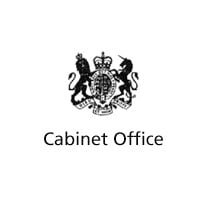The Cabinet Office has released an open data white paper and relaunched its flagship data portal – which includes new health datasets – as it aims to deliver a “21st century democracy.”
In a foreword to the ‘Unleashing the Potential’ white paper, Cabinet Office minister Francis Maude says that “transparency is at the heart” of the government’s agenda.
He also says that opening up data is underpinning its public service reforms by “offering people informed choices that simply haven’t existed before.”
The government’s data portal, www.data.go.uk, has been revamped to include almost 9,000 datasets that cover health, education, transport, crime and justice.
The white paper states that this will allow patients to scrutinise health issues such as hospital infection rates and GP outcomes, including cancer survival rates by practice.
At the announcement, Maude said that the data revolution “must benefit ordinary people going about their ordinary business” and that in “decades time we will look back and wonder how we tolerated not knowing the quality of doctors.”
Every government department has published an open data strategy, which sets out what information they are going to release over the next two years and how they will “stimulate a market for its use.”
The portal has been completely overhauled with improved search facilities – such as an advanced geographical information system data search – simpler ways to access information, and better tools for developers.
Maude also announced the appointment of YouGov founder Stephan Shakespeare as chair of the new UK Data Strategy Board, which will advise government departments on what data they should release.
The white paper has confirmed the official adoption of the 14 public data principles developed by the Public Sector Transparency Board, and adapted under the ‘Making Open Data Real Consultation’, as government policy.
The principles detail that all public data will be published using open standards, public data policy will be driven by the people that want and use the data, and that public data will be published in a re-usable and machine-readable form.
The government has also adopted Sir Tim Berners-Lee’s five star scheme, which aims to improve the UK’s data landscape by measuring the usability of open data.
The white paper states aims to achieve a “three star” standard for all government data, which makes it available in an “open and non-proprietary” format.
The UK director of transparency and open data and soon-to-be the national director for patients and information at the NHS Commissioning Board, Tim Kelsey, conducted a Q&A on open data after Maude’s announcement.
Asked where he would like to see open data in ten years’ time, Kelsey said that open data should be the “currency of public services – but well within a decade.”
“Let’s say five years until comprehensive operational transparency – there is real urgency about this: if we can’t help a patient answer which is the right doctor for them, it means the health service won’t have the business intelligence it needs to improve outcomes,” he said.
The government’s plans have been generally welcomed. Bad Science author Dr Ben Goldacre tweeted Kelsey, saying that he "looked forward to great things for improving efficiency and effectiveness with your NHS data tenure."
Dr Carl Reynolds, the organiser of the recent NHS Hack Day, and an EHI columnist, noted that Goldacre had also given a mention to the hack event, and to one of the solutions it developed, an ‘open’ version of the British National Formulary.
However, other tweets expressed scepticism about whether a government board would really promote transparency, and whether it would "publish the data that people want, not just the data that’s easy to publish."

